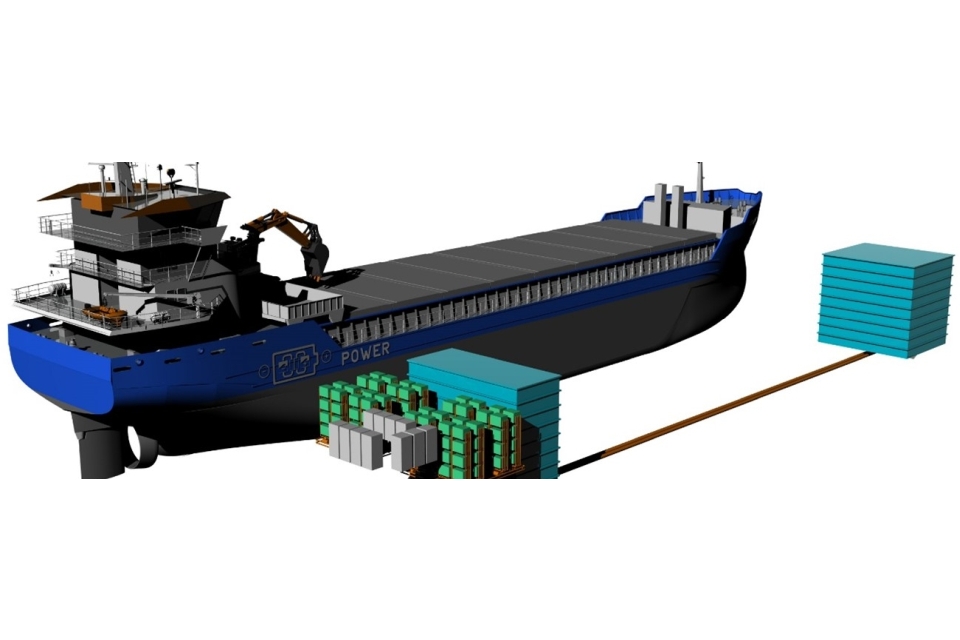In December 2020, Bob Hillen, student of TU Delft Master Marine Technology, joined ship design company Conoship International for his graduation project. The objective of his research was to deliver a proof of concept for the operational and economical feasibility of vanadium bromide redox flow battery-powered shipping.
‘To reduce greenhouse gas (GHG) and pollutant emissions within the maritime industry, Conoship International has designed a zero-emission battery-powered ship for application within the short sea shipping (SSS) market,’ explains Hillen. ‘The energy source of this ship is a vanadium bromide redox flow battery system. As a result emission-free operations are achievable. The technology of redox flow batteries has been proven in land-based applications, however, in shipping it is still unknown.’
Hillen: ‘An elaborate analysis of historical voyage data has been carried out to determine operational feasibility. To determine economic feasibility, a cost-comparison model has been constructed, including the capital, operational and voyage related expenses. Then a case study method, including scenario analysis, has been used to determine under which circumstances a battery-powered Conoship is cost-competitive with diesel-powered ships.’
Also read: Jan Jaap Nieuwenhuis new managing director of Conoship
Maximum range of 650 nautical miles
Conoship states his research has contributed to increasing scientific knowledge of the operational possibilities of limited range sailing for the general cargo SSS market. The strength of this research into the economical feasibility, with means of a cost-comparison model is that the variables in the model can be changed to determine for different (circumstances) scenarios when a battery-powered ship is cost-competitive with a diesel-powered ship.
In conclusion, it’s operationally feasible to operate a battery-powered ship with a maximum range of 650 nautical miles. This research shows that it could be economically feasible provided that other factors, such as the implementation of a CO2-tax, are addressed in the near future.
Also read: Conoship: Marine carbon capture future-proofs LNG-fuelled vessels








